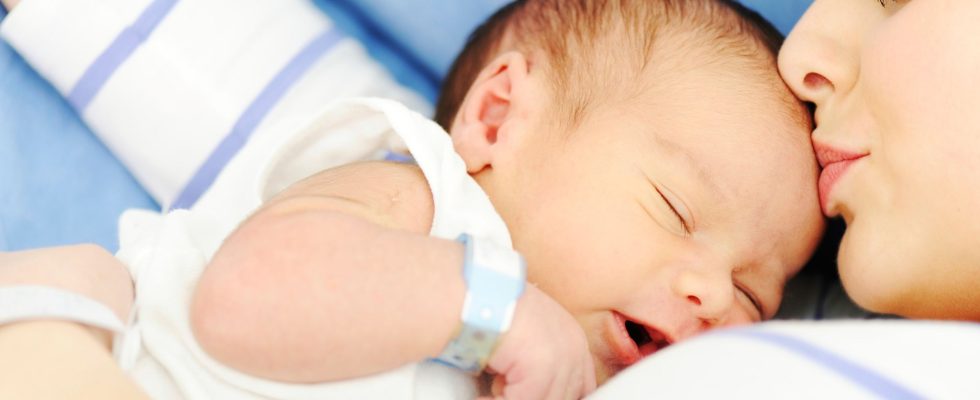What’s more natural than a mother watching over her children? When uttered rashly, the assertion is likely to electrify the debates. However, it is based on a scientific reality: in mammals, during pregnancy or gestation, a set of hormonal changes reshapes the brain and facilitates attachment and protective behaviors. If blood from pregnant mice is transferred to virgin mice, they begin to care for babies of their species. Normally, they attack them or avoid them.
Until now, scientists did not know exactly how these hormones, estrogen and progesterone, present in radically different amounts during pregnancy, change brain structures. Published this Thursday in Scienceone of the most renowned scientific journals, a study carried out by researchers from the Francis Crick Institute, a British research center, specifies the interactions between these chemical elements and the neurons responsible for what is commonly called “the maternal instinct “.
To obtain such results, scientists first wanted to identify when behavioral changes occur. They filmed the reactions of female mice to babies, before, during and after their pregnancy. Less than 40% of virgin females grab the young presented to them to take care of them. Conversely, the more the pregnancy progresses, the more the mice take the babies with them – almost all do so, at the end of the pregnancy. Their reaction time is also getting shorter and shorter.
The scientists then blocked different brain hormone receptors, using viruses whose activity was hijacked, like a vaccine. And they also injected different cocktails of hormones, to clarify exactly which ones were at play, and where. This work made it possible to isolate a type of neuron, called a “galanin neuron”, in the medial pre-optic area. These neurons, subjected to intense stimulation and reorganization during gestation, are responsible for the behavioral changes observed during this period.
“Our work therefore suggests that pregnancy hormones open a window of adult plasticity during which neuronal remodeling orchestrates behavioral adaptations for the future challenges of motherhood,” describe neuroscientists from the Francis Crick Institute. Pregnancy is therefore a more favorable time for learning new behaviors, particularly those of attention and attachment. This does not mean that women are made to take care of children alone or that they are better at holding a bottle and changing diapers than men.
And for men?
If the gentlemen do not give birth, their brain also evolves through contact with the child, according to several studies, including one carried out in particular on homosexual parents, published in 2014 in PNAS, the journal of the American Academy of Sciences. Spending time with your offspring would increase oxytocin levels, the attachment hormone par excellence, and drop testosterone levels. These changes would also allow, but in another way, a reorganization of the brain which would facilitate the implementation of parental behaviors, and therefore the father’s commitment to his child. This is what we could call “the paternal instinct”.
